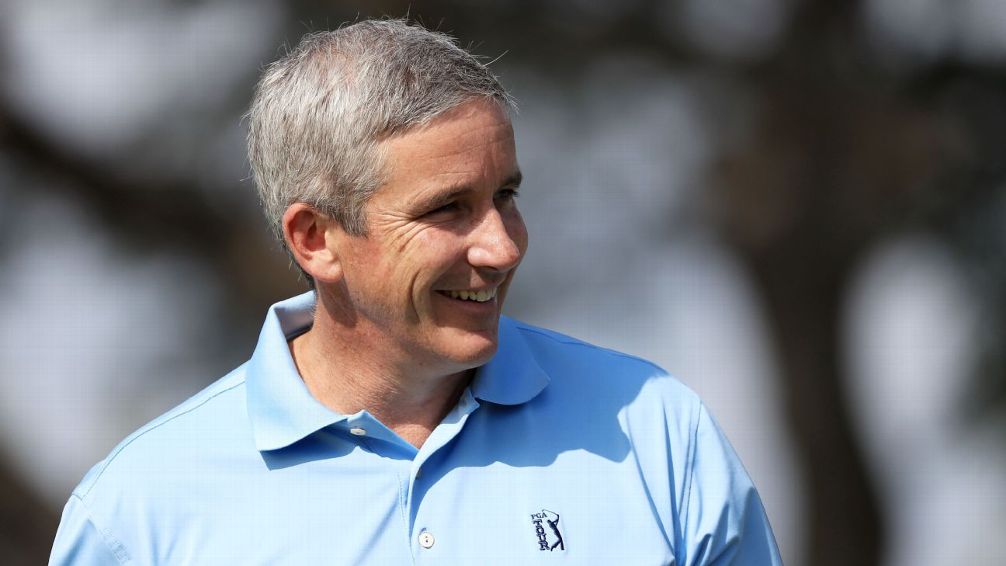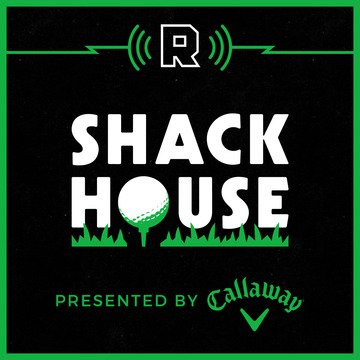Korean Press Greets Commissioner With Some Tough Questions
 With the inaugural CJ Cup at Nine Bridges over and another nine playings on the docket, Commissioner Jay Monahan and tour EVP of Global Business Affairs Ty Votaw traveled to Korea. They kindly sat down with the assembled media before Sunday's final round and took some interesting questions.
With the inaugural CJ Cup at Nine Bridges over and another nine playings on the docket, Commissioner Jay Monahan and tour EVP of Global Business Affairs Ty Votaw traveled to Korea. They kindly sat down with the assembled media before Sunday's final round and took some interesting questions.
Q: It’s great that we have got another event in Asia. From the next season, 2018-2019 season, you are going to make some big changes with possibly the playoffs coming soon and the PGA Championship moving. It looks to me as though you are going to free up more dates in the fall, in the post-labor day area. Are you planning more tournaments in Asia? Japan or China?
Jay Monahan: I would answer that by confirming that we have what you just mentioned, which is we have the commitment to move the Players to March and PGA Championship to May. You were right in that it does freeze some time in the fall. The next step we are going to take in order affect change is to essentially complete other parts of our schedule the tournaments that exist in that pre-labor day window in the U.S.
But we are a global game. If you follow the logic trail of being here, you look at the fact that you’ve got 3.5 million participants and 36 million rounds of golf played, we love what we are seeing in terms of emergency screening technology, the fact that we’ve got such a rich number of players.
Wait what? Uh, I'm chalking "emergency screening technology" up to a translation gaffe. Go on...
As you look out into the future, the reason that we are putting so much resource into key international markets is so that we are prepared when an opportunity presents itself to expand to be in the right position. But to say something is imminent would be a miscalculation and a mistake at this point.
We'll put them down for no further Asian expansion at this time.
Q: Are you surprised to see only a few foreign press covering the event, given that this event is quite significant? Why do you think that there aren’t many global press covering this event here?Ty Votaw: There is no question that we are very excited about the opportunity to be here, first time being an official event. The media landscape in all countries is changing and as you know, the golf media in the US is also changing with decreased budgets and decreased stabilities to cover even some domestic events in the US. We now have opportunities with other platforms and other areas.
I know that our own platforms are here covering extensively for the US and for other countries around the world. I will say that, much like the reactions of our players, when they go home and talk to other players about their experience here, I think you will see over the next 10 years when we are coming to South Korea and to Jeju for this event that a broader swath of media coverage will follow.
Q: The Korean fans are grateful that Sang-moon Bae and Seung-yul Noh were given exemptions, given their situation with the national service, and that PGA has shown a lot of respect for the Korean golf. However, given that is a Tier 1 tournament with a decent sum of prize money, don’t you think that we are missing a lot of the top-class players? For example, Hideki Matsuyama and Ernie Els pulling out and not many players from the top 20?
Ty Votaw:As I mentioned earlier, I think that the experiences of the players who are here this week, when they take those stories and those experiences back with them to the PGA tour it’s going to be very positive story that they are going to be telling. As any PGA tour event on our schedule, our players choose their schedules according to what fits their specific need and their specific goals and desires. Certainly, we have added a third event in Asia this year and there has been a significant support of all three events by the top players but, perhaps not all three events by the top players.
I think what you are going to see is, the ability for players to evaluate what their experience was this week and last week in CIMB and in HSBC, and they will set their schedules accordingly. I think we are very pleased with the feel that we have this week, as commissioner mentioned earlier, our ability to have our Fedex Cup champion, our rookie of the year, former number ones Jason Day and Adam Scott plus all the other great players who are on the field this week. It’s a great start to a long term commitment by CJ and I think we will continue to do everything we can to make sure that our players support these important sponsorships.
Q: I think there are a few things that can be improved in the future. The tournament is over at 3pm and it seems to feel a bit loose and it’s difficult for the gallery. Would it be possible to increase the field?Monahan: This is just the first of our ten-plus years here. One of the things we knew going into this week was that we're going to do our very best to execute a world-class THE CJ CUP @ NINE BRIDGES, but when we left at Sunday night there’ll be a number of things we could learn from over the course of the week, and our constant pursuit to improve and get better and do the best we can in South Korea.That’s exactly what will happen. We’ll look at every facet of the tournament. We'll make significant improvements in any facet of this event. We're not done yet. This tournament will be finalized in the next several hours but I would say that at this point on Sunday, what has happened on the grounds here, the response that we received, the things we learned from the fans here, we’re really pleased with where we are.
 Monday, October 23, 2017 at 01:57 AM
Monday, October 23, 2017 at 01:57 AM  6 Comments | in
6 Comments | in  2018 PGA Tour,
2018 PGA Tour,  Golf Media,
Golf Media,  Jay Monahan,
Jay Monahan,  PGA Tour
PGA Tour 





















